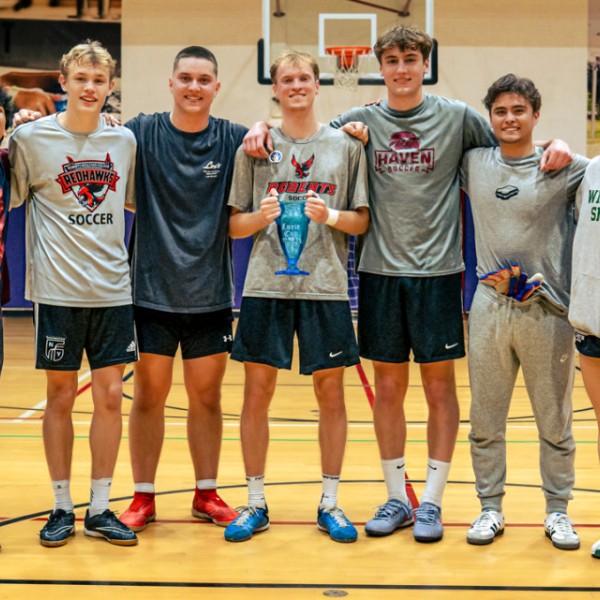“In the medical profession, you’re always going to be learning and teaching others,” said Nadella, a biology and society major. “I joined the Community Learning and Service Partnership (CLASP) for just that reason: to learn how to be a lifelong learner. Adapting to conduct home-based fieldwork is just one more challenge that I’m confronting in my academic career.”
CLASP connects students with Cornell employees who want to advance in particular areas, such as English as a second language, computer skills or career readiness. Students enrolled in adult and lifelong learning courses in the College of Agriculture and Life Sciences serve as educational mentors.
Early in the spring semester, the students gathered once a week on campus, then one-on-one with their staff mentees. But with the switch to remote learning in April – and recognizing that not all staff has the same level of access to technology – the class had to find creative ways to modify the learning partnerships, according to Annalisa Raymer, MPS ’00, Ph.D. ’07, director of CLASP and lecturer in the Department of Global Development.
Some students transitioned to what Raymer calls “Learning Partners in Place” – an idea she credits to Nadella. Simply put, the new approach had students fulfilling mentorship requirements by developing learning curricula for family members.
Some taught parents statistics or how to build a website; others taught family members how to cook, use e-commerce or manage finances. Some mentored younger siblings in academic assignments.
“These learning partnerships highlight the value of lifelong learning, while also providing an opportunity for mutual growth,” Raymer said.
Nadella transitioned from mentoring an Alice Cook House food worker in English to teaching her father how to use social media platforms. She learned new lessons, she said, such as how to read body language, the role of family dynamics in the learning environment and what impact open communication can have on the learning process.
“This experience has given me extra insight on methods of communication and how relationships can affect the learning process,” Nadella said.
Even though students couldn’t work with their employee learning partners, some continued to focus on that partnership by designing a course specifically for them. Other students developed self-directed learning projects, which allowed them to pursue personal interests such as how to be a better teammate.
As students found ways to navigate the stress of pandemic, one class decided to adjust its curriculum to a “Processing the Pandemic” assignment. Students reflected on their experiences by making a storyboard, film, photo journal or written journal, which “gives students space to make sense of their own experience,” Raymer said.
“This pandemic has affirmed the mission of CLASP,” she said. “The value of education at any age is a great foundation for resiliency. We are determined to make learning more equitable and sustainable, not only by working with adult learners here at Cornell but also by preparing a cohort of educators who understand that learning is a lifelong process.”
CLASP is part of the Department of Global Development in CALS, and is funded by the Cornell Department of Human Resources.
Kelly Merchan is a communications specialist in the Department of Global Development.





